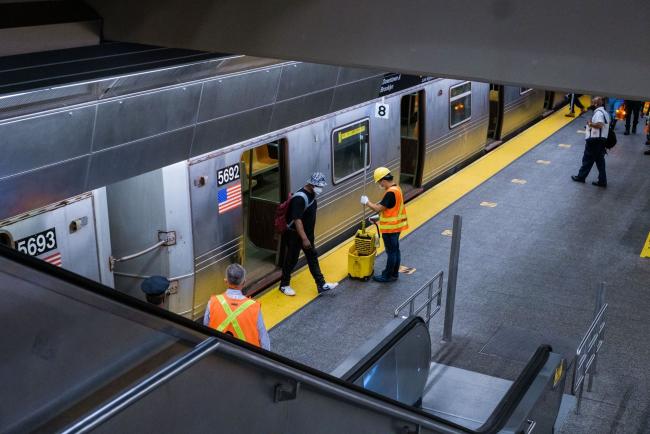This post was originally published on this site
https://d1-invdn-com.akamaized.net/content/pic33d7fbe728d46260da0a807778a007a9.jpg
The Fed charged a true interest cost of 1.92%, “resulting in savings of over 85 basis points compared to the public market levels,” according to an emailed statement from MTA spokesperson Tim Minton.
The transit agency, bleeding cash because ridership is down amid the pandemic, turned to the Fed after rejecting the higher bids from Wall Street banks Tuesday, according to a notice by Grant Street, which runs an auction platform for municipal sales. The Fed had previously agreed to buy the debt that the MTA did not award to other bidders, according to documents released as part of the sale.
The central bank created the program earlier this year after the economic collapse from the pandemic rocked state and local government budgets and sent the $3.9 trillion municipal bond market into a tailspin. The Fed’s decision to act as lender of last resort arrested the steep sell-off in March by reassuring investors that the market wouldn’t be rocked by another liquidity crisis and even the hardest hit government agencies would still be able to raise funds.
Since then, though, it has only been used one other time, by Illinois, according to central bank data as of last week. That’s because the Fed is charging steep penalties at a time when most can borrow at the lowest rates in decades. The MTA’s offering was seen as a test of whether the Fed’s decision on Aug. 11 to lower prices on the loans would increase use of the program.
“This financing underscores again the MTA’s need for $12 billion of Federal funding to offset projected revenue losses through 2021,” MTA chief executive officer Patrick Foye said in an emailed statement on Tuesday.
Related: Illinois Becomes First to Tap Fed Loans After Yields Surge
The New York MTA, the largest U.S. transit system and among the agencies hardest hit financially by the coronavirus shutdowns, said it’s facing a $16.2 billion deficit related to the pandemic, according to documents associated with the debt sale.
It was seeking to borrow through cash-flow notes due in three years. Yet the weighted average true interest cost on bids submitted by the banks totaled about 2.79%, according to Grant Street. That’s far more than the market’s 3-year benchmark yield of about 0.12%, showing the level of risk investors are pricing into the securities.
The transit agency’s transportation revenue bonds are rated A2 by Moody’s Investors Service, A+ by Fitch Ratings, BBB+ by S&P Global Ratings, and AA+ by Kroll Bond Rating Agency, according to its website.
©2020 Bloomberg L.P.

